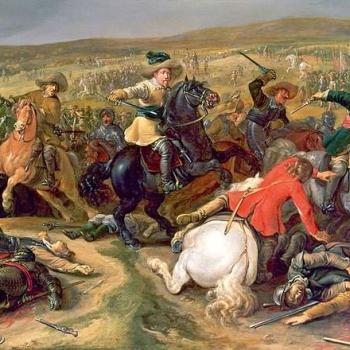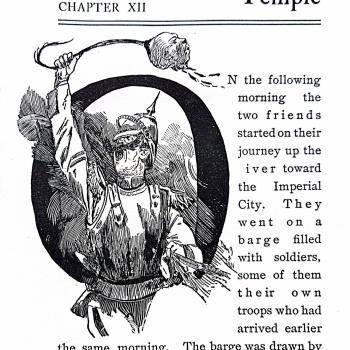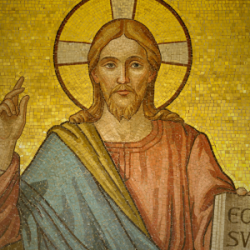By David Limbaugh
Note from Timothy Dalrymple: in light of recent allegations that politically conservative evangelicals have become guilty of "America-worship," or of "confusing American nationalism with the gospel of Jesus Christ," or that the recent Restoring Honor rally heralded "the birth of a new national religion," I invited a number of authors from across the political spectrum to address these questions:
 When does patriotism pass over into national idolatry? What is the right relationship between faith and politics? And are evangelicals today guilty of America-worship?
When does patriotism pass over into national idolatry? What is the right relationship between faith and politics? And are evangelicals today guilty of America-worship?
I put these questions to David Limbaugh, and he was generous to share his thoughts in brief. Limbaugh is author of the #1 New York Times bestseller, "Crimes Against Liberty," and his book "Persecution" examines issues of faith and politics. Brother of the famous radio personality, David Limbaugh writes twice-weekly columns that can be found at Townhall.com.
Anytime a person places his focus on anything ahead or above his focus on God, he could be said to engage in idolatry. I sometimes struggle with that very issue where politics is concerned. A healthy passion for politics is not inconsistent with an even fiercer passion for God, yet I am so passionate about politics I sometimes think my priorities get slightly out of line.
But I do not accept the premise giving rise to the criticism in the first place -- the premise that to be patriotic is to worship America -- and I do not believe that revering the Constitution, especially since it was established on Christian principles, is inconsistent with Scripture. Nor do I believe that respecting the symbols of our nation, such as the flag, is at all improper from a biblical perspective. Patriotism of the type to which I (and I believe most Christian conservatives) subscribe is in no way idolatrous because it does not place America above God. Indeed, it places America under God.
This, I think, is the rub for liberals. They claim they are all in favor of religious liberty, but at most they show selective support for the principle. They misapprehend the relationship between Church and State and wrongly believe the Establishment Clause of the Constitution requires a near complete segregation of the two, which is absurd and completely at odds with the view of the overwhelming majority of this nation's founders. They have gone so far as to object, on specious constitutional grounds, to Christian politicians allowing their biblical worldview to inform their governance. They don't object when the practitioners of other faiths or when secularists base their approach to governance on their worldviews. Nor do they bother to explain how it is remotely possible for any officeholder to divorce his worldview from his governance. This is because it is not possible -- and nor is it desirable.
The liberals' real objection is to conservatism and to any influential proponents of it, whether it be an influential radio talk show host, an energetic, contagiously enthusiastic ex-governor of Alaska or the ordinary members of the Moral Majority. They cloak their objection to Christian conservatives in the language of religious liberty, but in the process of stumping for religious liberty, they seek to suppress it -- at least when it comes to Christian conservatives.
Some politically and theologically liberal Christians similarly disguise their radical disagreement with America's founding principles as their own brand of patriotism ("We love America so much, we want fundamentally to change it"), and as a healthy relationship between citizens and their government. In other words, they partially excuse their own absence of patriotism by wrongly characterizing the Christian conservatives' patriotism as something improper and unbiblical.




